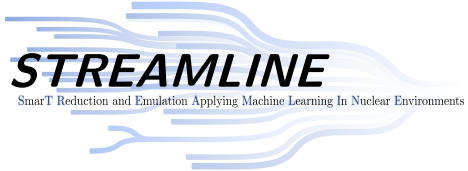The STREAMLINE Collaboration Symposia will be held at the Facility for Rare Isotope Beams (FRIB) on the campus of Michigan State University (MSU) in East Lansing, MI USA.
The STREAMLINE (SmarT Reduction and Emulation Applying Machine Learning In Nuclear Environments) collaboration aims to advance the frontiers of theoretical and computational research on the nuclear many-body problem using ML. The scientific problems we address are among the most challenging in computational nuclear many-body theory and the collaboration is aligned with the U.S. government initiative to build a broad-based, multidisciplinary, multi-agency program for a sustained national AI structure. STREAMLINE will advance large nuclear physics computations to dramatically increase predictive power and improve our understanding of nuclear structure and dynamics, dense nucleonic matter, and emergent many-body phenomena -- this includes the properties of heavy neutron-rich nuclei and related astrophysical environments at the Facility for Rare Isotope Beams (FRIB); structure and reactions of nuclei and nuclear astrophysics at the Argonne Tandem Linac Accelerator System (ATLAS); neutron distributions in nuclei and few-body systems at Thomas Jefferson National Accelerator Facility (TJNAF); properties of fission at Los Alamos Neutron Science Center (LANSCE); and nuclear structure, reactions, and astrophysics at Association for Research at University Nuclear Accelerator facilities (ARUNA).
|
The STREAMLINE collaborative has four focus areas:
|

